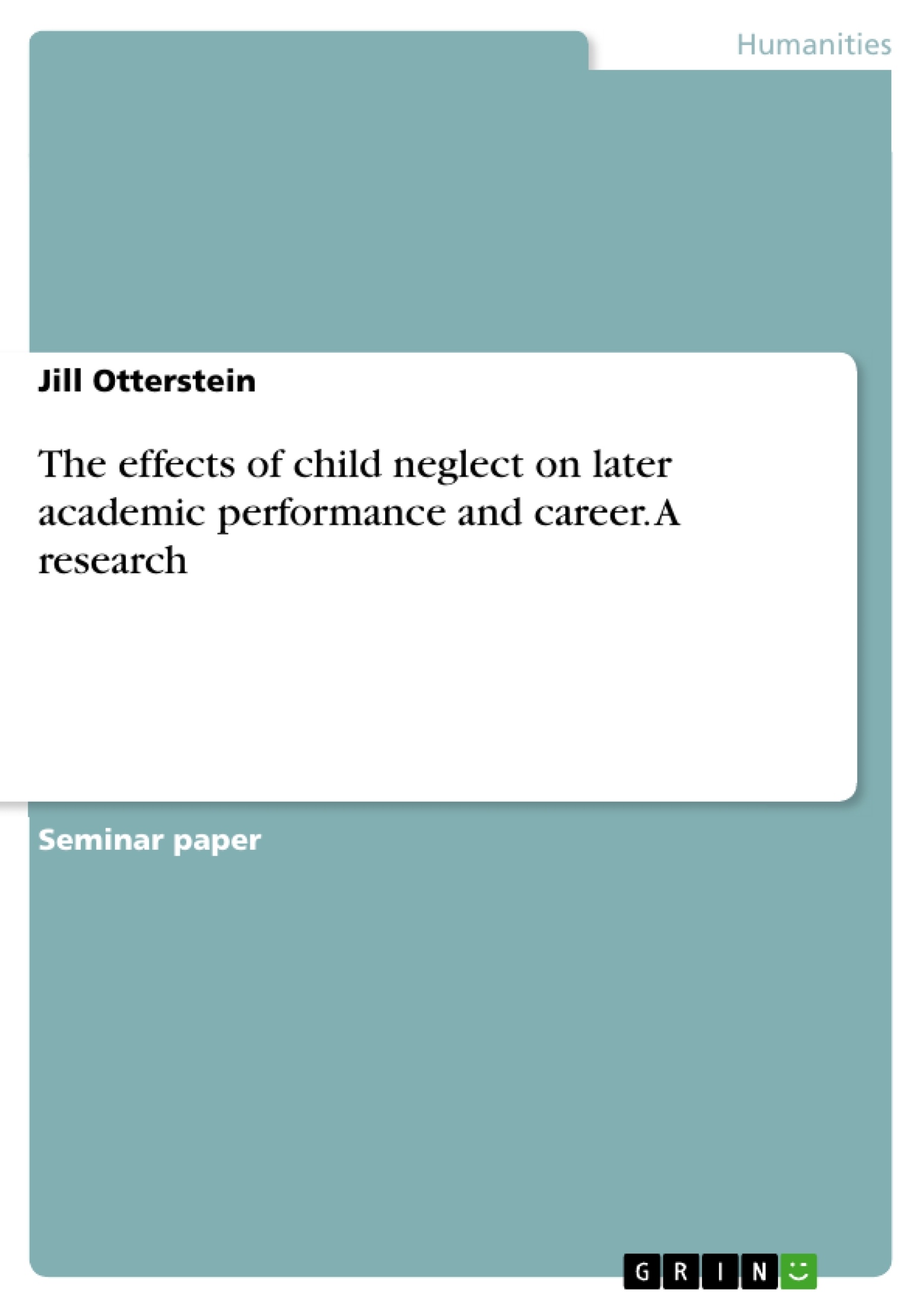This paper focuses on the effects of child neglect on the development of children and specifically on its consequences on later academic performance and career. To do this, the paper first presents insights into the importance of the family as a formative instance in the development of children. Important research questions in this context are the following: In which ways does the family influence this development? To what extent does the influence continue into adulthood? Why is the family the most important place of education and an essential learning environment?
Building on the answers to these questions, the paper thematizes the development of children in the case of neglect. It is discussed how this development is affected by the absence of a safe learning environment and a place of security. A particular focus is on the impact of such an unstable social environment on later adult life. It is emphasized that people who have experienced neglect on the part of their parents have difficulties in dealing with certain life situations. One important reason for the appearance of these difficulties are cognitive abilities that may be less developed due to neglect. Furthermore, specific problems that the affected persons have to face in their private life as well as in their academic life up to adulthood are thematized.
Inhaltsverzeichnis (Table of Contents)
- Introduction
- Children's development
- Family as an important development instance
- The influence of a parent-child relationship on the growing up of children
- Family as a primary place of education
- Child neglect's influence on later academic performance and career
- Effects of child neglect on the educational path
- Long-term effects on career opportunities
- Conclusion
Zielsetzung und Themenschwerpunkte (Objectives and Key Themes)
This paper examines the effects of child neglect on a child's development, particularly its impact on later academic performance and career. The paper starts by exploring the crucial role of the family in a child's upbringing and the importance of parent-child relationships in shaping emotional and cognitive development. The paper then delves into the impact of child neglect on a child's growth, discussing the negative effects of an unstable social environment and the potential for cognitive impairments. Finally, the paper examines the challenges faced by individuals who have experienced neglect in both their private and academic lives.
- The critical role of the family in child development
- The influence of parent-child relationships on a child's emotional and cognitive growth
- The impact of child neglect on a child's development
- The challenges faced by neglected children in their academic and professional lives
- The long-term consequences of child neglect on career opportunities
Zusammenfassung der Kapitel (Chapter Summaries)
The first chapter introduces the concept of child development and emphasizes the crucial role of the family in shaping a child's growth. It highlights the importance of parent-child relationships and the early formation of bonds, underscoring how these interactions influence a child's emotional and cognitive development.
The second chapter delves into the impact of child neglect on a child's development. It explores the concept of neglect, highlighting the various forms it can take, such as physical and emotional neglect. The chapter discusses how neglected children might face difficulties in forming healthy attachments, developing social skills, and acquiring cognitive abilities.
Schlüsselwörter (Keywords)
This paper focuses on child development, family relationships, child neglect, emotional and cognitive development, social skills, academic performance, and career opportunities.
- Quote paper
- Jill Otterstein (Author), 2021, The effects of child neglect on later academic performance and career. A research, Munich, GRIN Verlag, https://www.grin.com/document/1413724



